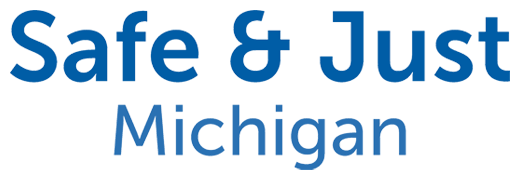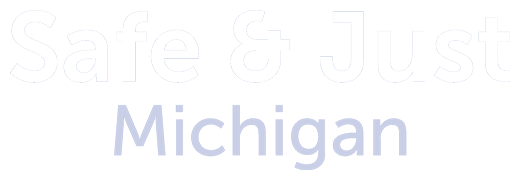Hundreds of thousands of people have suspended licenses in Michigan
Press Release
LANSING — A few simple policy changes could enable thousands of Michiganders to safely restore suspended drivers’ licenses, according to a new report released by the Lansing-based nonprofit Safe & Just Michigan. Having a driver’s license is often essential to getting to work, school or the grocery store in a state that prides itself in being home to the automotive industry and that has few public transportation options outside major city centers. But restoring a license can be a confusing, laborious and expensive process. The recommended changes include a new law requiring the court to perform an ability-to-pay assessment before a person’s license is suspended due to unpaid court debt, and three changes to court and administrative rules governing the restoration process.
“Most of us have had the experience of scrambling to find a way to get to work or get your kids to school when your car is in the shop, but for people who have a suspended driver’s license, that becomes a daily challenge,” said Kamau Sandiford, Clean Slate Program Manager at Safe & Just Michigan and one of the report’s authors. “Without reliable transportation of their own or access to public transportation — which just doesn’t exist in many places in our state — a lot of people can’t get to good jobs, can’t take their kids to school and can’t even drive to the hospital in an emergency.”
It’s unclear how many people have a suspended license in Michigan, as the state doesn’t track when someone with a suspended license might move out of the state, but the scope of the problem is considerable. The Michigan State Police’s 2022 Drunk Driving Audit counted more than 25,000 licenses suspended that year because of an Operating While Intoxicated (OWI) offense alone — while thousands more may lose driving privileges for other reasons, such as moving violations unrelated to intoxication. Once a license is suspended, a person can struggle for years to pay the fines and fees associated with restoring driving privileges.
“Tens of thousands of people a year are losing driving privileges, which makes providing and taking care of your family a logistical nightmare. Then they try to get their licenses reinstated, only to be confronted with more fees, requirements and hearings to navigate,” Safe & Just Michigan Executive Director and report co-author John S. Cooper said. “The question should be whether a person is safe to drive. If the only thing holding them from restoring a license is an unpaid fee or overly burdensome requirement, that doesn’t make our roads safer for you or me. It just makes life harder for the person without a license.”
The changes suggested by the report include:
- Enacting a new law requiring an ability to pay assessment be conducted before a driver’s license is suspended to determine a person’s ability to pay fines and fees and restore their driver’s license.
- Establishing a consistent standard for “manifest hardship” throughout all Michigan courts, a status that shields people with low-income from being overburdened by court costs. Currently, each court applies manifest hardship on a case-by-case basis using its own standard.
- Removing or modifying the “habitual offender” rule, so that someone who last had an OWI offense 10 or 25 years ago won’t be considered a habitual offender.
- Limiting a hearing officer’s authority to compel a person to attend a support group such as Alcoholics Anonymous that isn’t required under law. Failing to attend current AA meetings has been used to deny license restoration, even when a petitioner completed an AA program years prior.
“Everyone who drives on Michigan roads has an interest in keeping them safe,” Sandiford said. “But when we hinder safe drivers from restoring driver’s licenses, we aren’t protecting anyone. All we are doing is making it harder for people to make a good living and provide for their families. Michigan’s courts and its Legislature should take these simple steps to fix this problem.”
### Safe & Just Michigan (www.safeandjustmi.org) advocates for evidence-based policies that reduce the harms of the criminal legal system and promote justice, community safety and healing. We partner with Michigan organizations and leaders from across the political spectrum, including business and community leaders, faith communities, crime survivor organizations, formerly and currently incarcerated people and their families, as well as Michigan taxpayers statewide.



